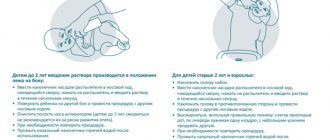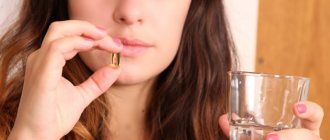Composition and release form
Physiomer® nasal spray for children
| Nasal spray | 1 fl. |
| Isotonic sterile solution of natural sea water (corresponding to 0.9% sodium chloride solution) |
in 115 ml bottles, complete with a spray nozzle; 1 set in box.
Physiomer® nasal spray
| Nasal spray | 1 fl. |
| Isotonic sterile solution of natural sea water (corresponding to 0.9% sodium chloride solution) |
in 135 ml bottles, complete with a spray nozzle; 1 set in box.
Physiomer® nasal spray forte
| Nasal spray | 1 fl. |
| Isotonic sterile solution of natural sea water (corresponding to 0.9% sodium chloride solution) |
in 210 ml bottles, complete with a spray nozzle; 1 set in box.
Physiomer, called for children from 2 weeks, 115 ml gentle industrial.
Composition and release form.
| Isotonic sterile solution of natural sea water (corresponding to 0.9% sodium chloride solution) |
in 115 ml bottles, complete with a spray nozzle; 1 set in box.
Description of the dosage form.
Transparent, colorless, odorless liquid.
Pharmachologic effect. Anti-edematous, anti-inflammatory.
Pharmacodynamics.
Provides active rinsing of the nasal cavity, has an anti-inflammatory, moisturizing, cleansing effect and improves the regeneration processes of the nasal mucosa.
Helps remove mucus, reduce secretions and swelling of the nasal mucosa caused by allergic and pathogenic factors, improve nasal breathing, soften and remove crusts, accelerate healing processes after operations.
Indications.
Physiomer® nasal spray for children:
used in children aged 2 weeks and older.
Physiomer® nasal spray:
used in children aged 2 years and older, as well as in adults.
● ARVI and acute diseases of the nose and nasopharynx: infectious rhinitis, allergic rhinitis, rhinosinusitis, nasopharyngitis, sub- and atrophic rhinitis with crusting, exacerbation of chronic rhinitis;
● prevention of infectious diseases of the nose and nasopharynx;
● hygiene of the nasal mucosa.
Physiomer® nasal spray forte:
used in children aged 6 years and older, as well as in adults with the above diseases and for caring for the nasal mucosa and accelerating regeneration processes after operations on the nasal cavity and sinuses (including adenoidectomy, polypectomy, septoplasty).
Contraindications.
There are no restrictions on the use of the drug.
Use during pregnancy and breastfeeding.
There are no contraindications for using the drug during pregnancy and breastfeeding.
Side effects.
When used in accordance with the instructions for use, no adverse reactions have been identified.
Interaction.
No interaction with other drugs was noted. Physiomer® can be used in combination with other treatment methods.
Method of administration and dose.
For acute respiratory viral infections and diseases of the nose and nasopharynx: for children from 2 weeks and older - 2-4 rinses of each nasal passage daily (if necessary, more often).
For the prevention of infectious diseases of the nose, nasopharynx and hygiene of the nasal mucosa: children from 2 weeks and older - 1 rinse of each nasal passage daily (if necessary, more often).
Special instructions.
When used in the postoperative period, consultation with a doctor is necessary.
Manufacturer.
Laboratory GOEMAR S.A., France.
Indications of the drug Physiomer® nasal spray forte
Physiomer® nasal spray for children: used in children aged 2 weeks and older.
Physiomer® nasal spray: used in children aged 2 years and older, as well as in adults.
ARVI and acute diseases of the nose and nasopharynx: infectious rhinitis, allergic rhinitis, rhinosinusitis, nasopharyngitis, sub- and atrophic rhinitis with crusting, exacerbation of chronic rhinitis;
prevention of infectious diseases of the nose and nasopharynx;
hygiene of the nasal mucosa.
Physiomer® nasal spray forte: used in children aged 6 years and older, as well as in adults with the above diseases and for the care of the nasal mucosa and acceleration of regeneration processes after operations on the nasal cavity and sinuses (including adenoidectomy, polypectomy, septoplasty).
Physiomer hypertonic nasal spray from 2 years 135ml
A country
France
The country of production may vary depending on the batch of goods. Please check with the operator for detailed information when confirming your order.
Active substance
Sea water
Compound
Cylinder 135 ml
Sea water 135 ml
pharmachologic effect
Sea water helps maintain the normal physiological state of the nasal mucosa, as well as thinning mucus and normalizing its production by goblet cells of the mucous membrane. The trace elements that make up sea water have an anti-inflammatory effect, stimulate reparative processes, improve the function of the ciliated epithelium, which increases the resistance of the mucous membrane to the introduction of pathogenic bacteria and viruses, and promotes its cleansing.
Indications for use
- adenoiditis; - acute, allergic, vasomotor rhinitis; - chronic diseases of the nasal cavity, nasopharynx, paranasal sinuses, incl. accompanied by dryness of the nasal mucosa; — prevention of nasal cavity infections in the autumn-winter period, with changing climatic conditions (rooms with air conditioning and/or central heating), the presence of polluted atmospheric air (smokers, vehicle drivers, hot and dusty workshops). — washing wounds of the nasal cavity and paranasal sinuses before and after surgical interventions. — hygienic procedures for the nasal cavity (including for infants).
Side effects
Not described.
Contraindications
- hypersensitivity;
- children's age (up to 2 years) - for the drug Physiomer in the form of a nasal spray; - children's age (up to 6 years) - for the drug Physiomer in the form of a nasal spray forte. Use in children Contraindications: children (up to 2 years) - for the drug Physiomer in the form of a nasal spray; children (up to 6 years) - for the drug Physiomer in the form of a nasal spray forte.
Mode of application
The method of administration and dosage regimen of a particular drug depend on its release form and other factors. The optimal dosage regimen is determined by the doctor. The compliance of the dosage form of a particular drug with the indications for use and dosage regimen should be strictly observed. The drug is used intranasally. Aqua Maris In infants, for hygienic purposes, the drug is used with turundas moistened with the drug, 2 times a day or by instillation of 1-2 drops into each nasal passage 2-3 times a day, for children aged 1 to 7 years - 1-2 injections into each nasal passage 1-3 times/day, children aged 7 to 16 years - 2 injections 1-3 times/day, adults - 2-3 injections into each nasal passage 3-6 times /day For the treatment of diseases of the mucous membrane of the nasal cavity, paranasal sinuses, nasopharynx, the drug is used: for children under 1 year - 2 drops in each nasal passage, for children aged 1 to 7 years - 1-2 injections in each nasal passage 1- 3 times / day, children 7-16 years old - 2 injections into each nasal passage 4-6 times / day, adults - 2-3 injections into each nasal passage 4-8 times / day. The course of treatment is 2-4 weeks, if necessary, the course of treatment is repeated after 1 month. To soften and remove nasal discharge, the drug is injected or instilled repeatedly (removing excess liquid with cotton wool or a handkerchief) into each nasal passage until the discharge is completely softened and removed. Physiomer For hygienic purposes and for the prevention of diseases of the mucous membrane of the nasal cavity and nasopharynx in children under 2 years of age (nasal spray for children) - 1 injection daily into each nasal passage; for diseases of the nasal cavity and nasopharynx (including acute respiratory viral infections) - 2-4 injections daily into each nasal passage. Adults and children over 2 years of age (nasal spray): - for hygiene of the nasal mucosa and disease prevention - 1 injection daily into each nasal passage; - for diseases of the nasal cavity and nasopharynx (including acute respiratory viral infections) - 2-4 injections daily into each nasal passage. Adults and children over 6 years old (nasal spray Forte): - for diseases of the nasal cavity and nasopharynx (including acute respiratory viral infections) - 2-4 injections daily into each nasal passage; - care for the nasal mucosa after surgery - daily 4-6 injections into each nasal passage. Duration of use - from 7 days to several months.
Interaction with other drugs
Sea water preparations are compatible with other medications for the treatment of ENT diseases.
Physiomer 115 ml nasal spray for children from 2 weeks
Latin name
Physiomer
Release form
nasal spray.
Package
Bottle 115 ml
pharmachologic effect
Pharmacotherapeutic group:
treatment for nasal diseases.
Pharmacological properties:
Physiomer provides active irrigation of the nasal cavity, has an anti-inflammatory, moisturizing, cleansing effect and improves the regeneration processes of the nasal mucosa.
The combined action of all the beneficial minerals and trace elements of sea water helps remove mucus, reduce secretions and swelling of the nasal mucosa caused by allergic and pathogenic factors, improve nasal breathing, soften and remove crusts.
Existing varieties of Physiomer are distinguished by different spray pressures of the atomizer and, therefore, by different doses for a single spray, as well as by different shapes of spray nozzles.
Indications
Physiomer nasal spray is used in children aged 2 weeks and older.
— Additional therapy for acute respiratory viral infections and infections of the ear, nose and throat, in particular, infectious rhinitis, allergic rhinitis, nasopharyngitis, rhinosinusitis, sub- and atrophic rhinitis with crusting, exacerbation of chronic rhinitis;
— prevention of infectious diseases of the nose and nasopharynx;
— hygiene of the nasal mucosa.
Contraindications
There are no restrictions on the use of Physiomer.
Use during pregnancy and breastfeeding
There are no contraindications for using Physiomer during pregnancy and breastfeeding.
Compound
Sterile isotonic sea water - 100%.
Directions for use and doses
The drug is used intranasally.
For ARVI and diseases of the nose and nasopharynx: daily from 2 to 4 irrigations of each nasal passage.
For the prevention of infectious diseases of the nose, nasopharynx and hygiene of the nasal mucosa: daily 1 irrigation of each nasal passage (if necessary, more often).
Duration of treatment: The drug can be used for quite a long time - from 1-2 days to several months.
Spray application method:
Place the spray nozzle on the bottle.
Place the child on his back, turning his head to the side so that the nasal passage is facing you.
Carefully insert the spray nozzle into the nasal passage.
Press the spray nozzle and irrigate the nasal cavity for 2 - 3 seconds.
Repeat this with the other nasal passage, turning the child's head in the other direction.
Lift the child up to allow the mucus to drain from the nose and wipe it away. If necessary, repeat the procedure.
After each use, remove the nozzle from the bottle, rinse with hot water, dry and store attached to the bottle.
Side effects
When used in accordance with the instructions for use, no adverse reactions have been identified.
Drug interactions
Physiomer can be used in combination with other medications.
Storage conditions
At temperatures from -4°C to 35°C. Keep out of the reach of children.
Best before date
3 years. Do not use after the expiration date.
Conditions for dispensing from pharmacies
Over the counter
Indications of the drug Physiomer® nasal spray for children
Physiomer® nasal spray for children: used in children aged 2 weeks and older.
Physiomer® nasal spray: used in children aged 2 years and older, as well as in adults.
ARVI and acute diseases of the nose and nasopharynx: infectious rhinitis, allergic rhinitis, rhinosinusitis, nasopharyngitis, sub- and atrophic rhinitis with crusting, exacerbation of chronic rhinitis;
prevention of infectious diseases of the nose and nasopharynx;
hygiene of the nasal mucosa.
Physiomer® nasal spray forte: used in children aged 6 years and older, as well as in adults with the above diseases and for the care of the nasal mucosa and acceleration of regeneration processes after operations on the nasal cavity and sinuses (including adenoidectomy, polypectomy, septoplasty).


